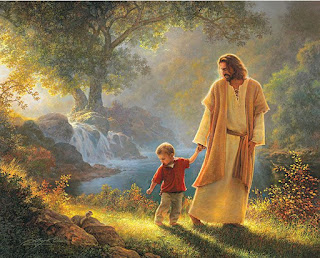Matthew 18:1-5 in the New International Version says,
At that time the disciples came to Jesus and asked, “Who, then, is the greatest in the kingdom of heaven?”He called a little child to him, and placed the child among them. And he said: “Truly I tell you, unless you change and become like little children, you will never enter the kingdom of heaven. Therefore, whoever takes the lowly position of this child is the greatest in the kingdom of heaven. And whoever welcomes one such child in my name welcomes me.
Notice the disciples seem to have a heavy subject weighing on their minds for first they "came to Jesus" and then they asked Him this question - "Who, then, is the greatest in the kingdom of heaven?" after God, of course. The Lord's answer seems to picture the Disciples having their priorities a little out of alignment.
Jesus saying, "unless you change" was a huge indicator that there was a change needed. The word "change" in other translations like the King James Version is rendered "unless you be converted". The original word Jesus used is strepho (stref - o), meaning turn around, reverse. I would add repent, which also means to change one's mind. Jesus knew the Disciples and told them up front, until you adopt and implement the mindset and attitude of becoming like little children - "you will never enter the kingdom of heaven".
The consequence is serious. When I research the word "kingdom" for "kingdom of heaven", the original word used was basileia (bas - il - i - ah). This word means both literally and figuratively - realm, rule and properly royalty. So, Jesus was saying, Unless you change the way you are thinking about the answer to your own question, you will never be a true citizen of Heaven or true royalty; a bonafide child in the family of God (my paraphrase).
Jesus realized their perception or focus needed a shift so that their behavior and lifestyle would follow. First, the mindset had to be established - "unless you change", with change being the key word. Secondly, God's version of childlikeness was a process - "become like little children" with become being the highlighted term here.
Jesus supplies the Disciples with two things they can work on - humility and hospitality. Speaking of "little children" not teenagers and up, but younger ones, Christ said of humility - "Therefore, whoever takes the lowly position of this child is the greatest in the kingdom of heaven."
As we grow older there are stages where we think we know it all and do not need any assistance from anybody on anything. Before we arrive at this stage, many of us in our early years are very inquisitive and seek to know as much about everything and everybody as possible. I believe the Lord desires us to develop the child in us that loves to learn from God, loves to ask Him questions, loves to pray to Him and get to know everything about Him.
As a grown-up, Jesus desires believers to be receiving, welcoming or hospitable to young ones. Christ said, "And whoever welcomes one such child in my name welcomes me." With such hospitality comes great responsibility.
Kids are thirsty sponges ready to soak up all you give out. If your words are pure, the surrounding children are going to absorb those pure words. Why are they so absorbent, so immersed, so soaked like sponges at what their environment offers? Because they are experiencing things either for the first time or from a different angle and want to emulate or copy a behavior in their own way. Remember - negative words and actions can be assimilated and emulated too so take care in your "welcoming".
Paul says in 1 Corinthians 13:11 - "When I was a child, I talked like a child, I thought like a child, I reasoned like a child. When I became a man, I put the ways of childhood behind me." Here Paul is separating out his then complex adult life from his simple childhood. True, your adult lifestyle now demands adult thinking, speech and actions but you can have the heart of a child while having the mind and behavior of an adult. I believe Christ desires us childlike but not childish. This is the True Value of Being Childlike.


No comments:
Post a Comment